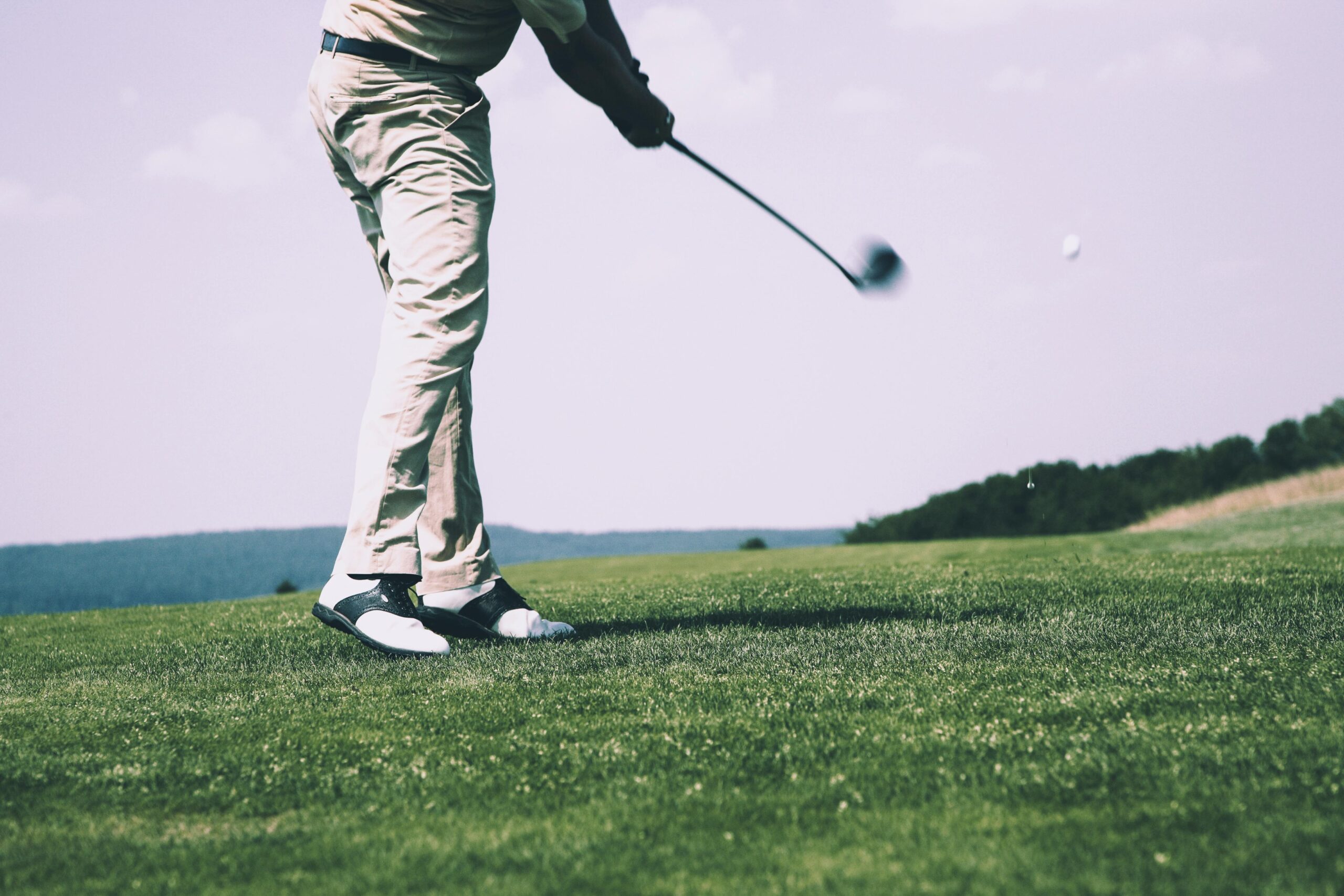How do golf injuries occur?
Golf is a sport which relies on maximising the rotation of the spine (neck and upper back), hip and shoulder. The forces generated with these movements are not only large in nature but happen at high speed. When the body’s rotation is limited, it can lead to technical issues in your swing like overswinging and loss of posture which can overload the shoulder and wrist muscles and increase lower back stress. This overload can lead to different golf injuries which can be extremely limiting in their impact.
What are common golf injuries and pains?
Knee pain and injuries
Luckily, knee injuries are not that common among golfers. When they do occur, it is typically due to increased rotational stress on the knee. The knee is a hinge joint which likes to move in flexion and extension (bending and straightening). It does this well but does not have a great deal of capacity for twisting movements. As we know, there is a lot of rotational stress on the body during the golf swing. There are quite a few stabilising structures which assist the knee’s ability to handle these twisting forces like ligaments and your meniscus, but they are sometimes overloaded/irritated, and in some severe cases this can lead to tears.
How do we treat knee pain from golf?
Management of knee issues around golf usually means doing few simple things to help the hips, trunk and shoulders rotate more which encourages the knee to rotate less. These include:
- Hip, trunk, and shoulder rotation stretching
- Strengthening exercises to resist the high speed and load of the golf swing
- Swing analysis and technique management. This will ensure good body rotations through the hip, trunk, and shoulders, to minimise unhelpful knee rotations
Back pain and injuries
Back pain and back injuries are quite common in golf, making up to 34% of the total injuries experienced. These are more avoidable than one would think. They are commonly due to a few manageable factors which typically includes:
- Golf posture endurance
- Lack of hip, thoracic and/or shoulder rotation
- Lack of core stability
- Poor technique
Common golf related pains tend to come from muscular strain, disc sprains and joint irritations. Our lower back is not overly good at rotation, that is why the ribcage (above), and the hips (below) have a high capacity for rotation.
How do we treat back pain in golf?
Golf is about managing the load of the body’s turns that create speed into the golf club. This means being able to accelerate toward the ball and decelerate after contact. We want to limit the amount of lower back rotation that takes place by encouraging it to occur at the hips and ribcage. This can be done by:
- Physio assessment and treatment
- Drills encouraging more control and freedom into hip and trunk rotation.
- Golf swing analysis and coaching
- Increased hip and ribcage rotation strength. This helps you slow down in a shorter time, to lower the amount of rotation you go through
What next?
If you’re struggling with an injury similar to the ones described above book an appointment with Aaron (our golfing guru) and get your recovery started!



